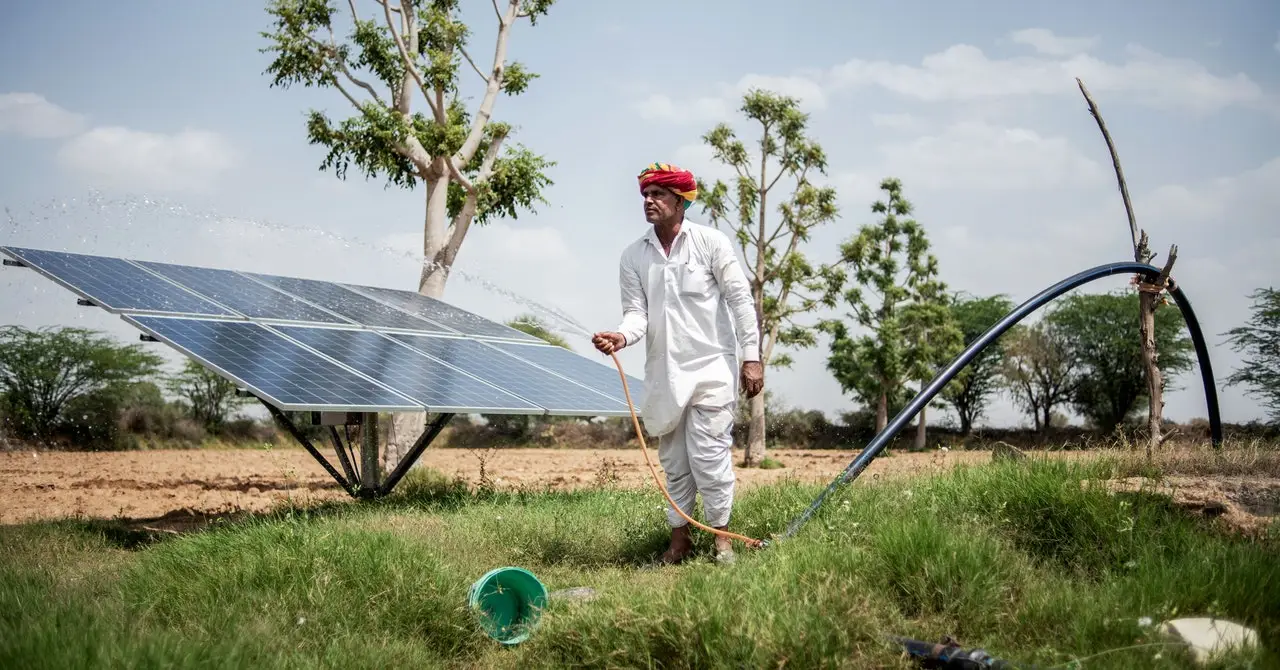Solar pumps are spreading rapidly among rural communities in many water-starved regions across India, Africa, and elsewhere. These devices can tap underground water all day long at no charge, without government scrutiny.
For now, they can be great news for farmers, with the potential to transform agriculture and improve food security. The pumps can supply water throughout the daylight hours, extending their croplands into deserts, ending their reliance on unpredictable rains, and sometimes replacing existing costly-to-operate diesel or grid-powered pumps.
But this solar-powered hydrological revolution is emptying already-stressed underground water reserves—also known as groundwaters or aquifers. The very success of solar pumps is “threatening the viability of many aquifers already at risk of running dry,” Soumya Balasubramanya, an economist at the World Bank with extensive experience of water policy, warned in January.
An innovation that initially looked capable of reducing fossil-fuel consumption while also helping farmers prosper is rapidly turning into an environmental time bomb.



About the only solution would be barbarism. A lottery to decide who gets to live and who has to go. And I’m not willing to participate in that. But as things get desperate, there will be those who are.
China’s one child policy worked well for China.
But there is no way to get a whole world, one child policy.
No need to, as countries develop, the birth rate already shrinks.
The problem is that many countries have ageing populations that vote in favour of policies that increase incentives to have more children so there are young people to care for those voting older people in their old age and pay for their pensions.